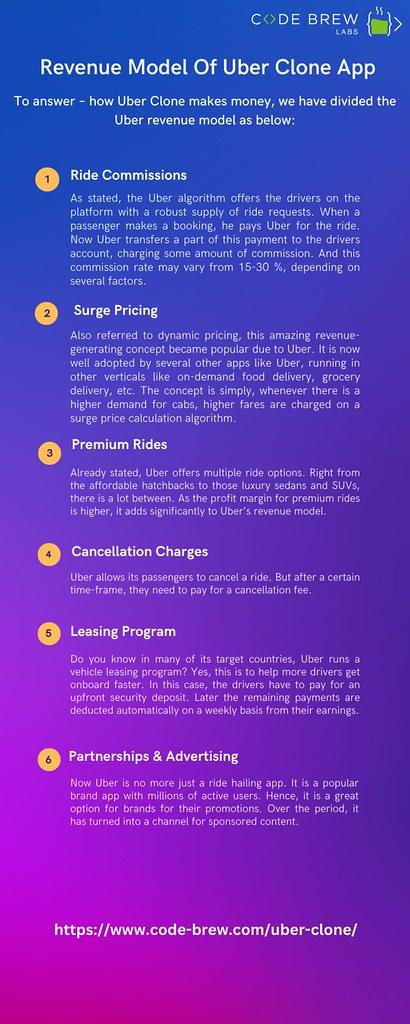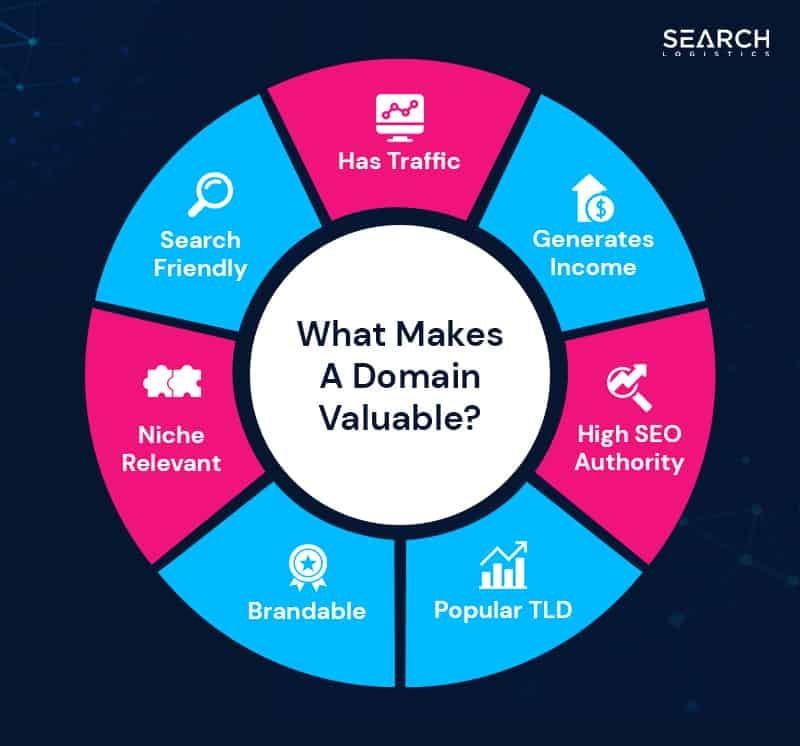Table of Contents
- Understanding the Domain Flipping Landscape
- Key Strategies for Successful Domain Acquisition
- Evaluating the Value of Domains Before Selling
- Navigating the Marketplace: Where to Buy and Sell Domains
- Best Practices for Maximizing Profits in Domain Flipping
- Q&A
- Key Takeaways
Understanding the Domain Flipping Landscape
In the ever-evolving digital marketplace, domain flipping has emerged as a lucrative opportunity for savvy entrepreneurs and investors alike. This practice involves purchasing domain names at a relatively low cost and selling them for a profit. Understanding the fluctuations within this landscape is crucial for maximizing success. Key factors influencing domain value include:
- Domain Length: Shorter names tend to attract higher values due to their memorability and ease of use.
- Keyword Relevance: Domains that incorporate popular keywords can rank better in search engines, increasing their desirability.
- Extension Type: The choice of domain extension (e.g., .com, .net, .org) can significantly impact resale value, with .com generally being the most sought after.
Moreover, the competitive nature of this market means that trends can shift rapidly. To stay ahead, domain flippers should be well-versed in emerging industries and technologies. For instance, the growth of e-commerce and lifestyle brands has led to rising demand for specific niche domains. Potential investment strategies could include:
| Strategy | Description |
|---|---|
| Buy-and-Hold | Acquiring domains and holding them for long-term appreciation. |
| Quick Flip | Purchasing undervalued domains and reselling quickly for profit. |
| Brand Development | Building out a website on the domain to increase its attractiveness before selling. |
Additionally, identifying the right marketplace is essential for successful domain transactions. Platforms such as GoDaddy Auctions, Flippa, and Sedo provide a wide range of options for buying and selling domains. Each platform has its unique audience and fee structure, so it’s beneficial to research which fits your needs best. With diligence and strategic planning, entering the domain flipping landscape can offer significant financial rewards for those willing to navigate its complexities.


Key Strategies for Successful Domain Acquisition
When it comes to securing a lucrative domain, thorough research is key. Take the time to analyze potential domains by checking their keyword value, length, and market trends. Use tools such as Google Trends and domain appraisal services to gauge their potential worth. An optimal domain should ideally be short, memorable, and relevant to your niche, facilitating easy recall and type-in traffic. Additionally, scrutinizing the domain’s history can reveal valuable insights, such as previous ownership and any past SEO penalties that may affect its reputation.
Another crucial strategy involves negotiation finesse. Once you identify a domain that piques your interest, approach the seller with a well-thought-out offer. This means being prepared to discuss the domain’s value based on your research. Utilize psychological techniques—like anchoring your offer based on comparable recent sales—to motivate sellers toward a favorable agreement. Don’t rush the process; a well-timed follow-up can yield better results than a pressured demand. Remember, patience is often rewarded in the domain acquisition game.
Leveraging domain flipping services can significantly enhance your chances of successful acquisitions. These services can provide expert insights, a wealth of data, and connections within the industry. Consider using platforms that specialize in domain sales and auctions, as they often have listings that might not surface through standard searches. Here’s a quick table summarizing some popular options:
| Service | Features | Best For |
|---|---|---|
| GoDaddy | Wide range of domains, auction platform | Beginner domain flippers |
| Namecheap | Affordable listings, excellent UI | Cost-conscious buyers |
| Sedo | Global reach, premium listings | Professional investors |


Evaluating the Value of Domains Before Selling
When considering the sale of a domain, it’s essential to examine its intrinsic and market value to maximize your profits. A domain’s evaluation criteria can significantly influence the final selling price. Factors such as the length of the domain, keyword relevance, and the presence of common extensions (like .com, .net, and .org) play a pivotal role. Additionally, domains that are easy to spell and remember tend to have higher demand, therefore, retaining their value over time.
It’s crucial to perform a thorough analysis of the domain’s SEO potential. This entails checking the domain’s current traffic volume, backlink profile, and ranking keywords. A strong history of traffic can significantly enhance a domain’s desirability. Here are elements to assess:
- Backlink quality: Strong backlinks from reputable sites can raise the domain’s authority.
- Search engine rankings: Keywords that rank well will likely drive organic traffic.
- Historical performance: Past data provides insight into the domain’s potential future value.
Lastly, having an understanding of your target audience is critical when pricing the domain. Conducting a competitive analysis can offer additional perspective on similar domains and their selling prices. A sample comparison is shown below:
| Domain Name | Sale Price | Extension | Traffic Volume |
|---|---|---|---|
| BestGadgets.com | $10,000 | .com | 3,500 visits/month |
| SmartHome.net | $4,500 | .net | 1,200 visits/month |
| HealthyRecipes.org | $2,200 | .org | 800 visits/month |
Evaluating these aspects will provide a comprehensive understanding of the domain’s value, enabling you to strategically position it within the marketplace. By leveraging this knowledge, you can enhance your chances of a successful and profitable sale.


Navigating the Marketplace: Where to Buy and Sell Domains
When it comes to entering the domain flipping arena, understanding where to buy and sell domains is crucial. Numerous platforms cater to different levels of expertise and budget. Some of the more popular marketplaces include:
- Sedo: One of the largest and most reputable domain marketplaces, offering a vast inventory and robust selling tools.
- Namecheap Marketplace: Known for affordable pricing and a user-friendly interface, it’s great for newcomers.
- Flippa: Perfect for selling not just domains, but entire websites, bringing together buyers interested in established web properties.
- Afternic: Offers a large network of resellers and excellent domain distribution options.
On the selling side, the right strategy can elevate your domain flipping game significantly. Consider listing your domains on multiple platforms to expand your audience reach. It’s also important to:
- Research market trends: Stay updated on what types of domains are in demand.
- Optimize listings: Use keywords and engaging descriptions to attract buyers.
- Engage with the community: Join forums and networking groups to gain insights and share experiences with fellow flippers.
Pricing your domains appropriately is another aspect of successful flipping. To aid in your strategy, here’s a simple table displaying common domain evaluation factors:
| Factor | Description |
|---|---|
| Length | Shorter domains generally carry more value. |
| Keyword Popularity | Domains with high search volume keywords are more desirable. |
| Extension | .com domains are typically pricier than others. |
| Brandability | Easily memorable and pronounceable domains are more valuable. |


Best Practices for Maximizing Profits in Domain Flipping
To achieve maximum profits in domain flipping, start with thorough research. This involves understanding current market trends, identifying desirable keywords, and analyzing competitor pricing. Utilize tools like Google Trends and domain valuation services to gauge the worth of potential domains. It’s essential to look for domain names that are short, memorable, and relevant to specific niches, as these tend to have higher resale values. Creating a list of targeted keywords can also assist in your search for viable domain names.
Another effective strategy is to invest in quality domains. Rather than buying domains on a whim, focus on those that possess existing traffic, backlinks, or brand potential. Domains that once hosted an active site or have been optimized for SEO can provide a substantial return on investment. To facilitate this, consider the following aspects when evaluating a domain:
| Criteria | Importance Level | Notes |
|---|---|---|
| Keyword Relevance | High | Aligns with current search trends. |
| Length | Medium | Shorter names are often more memorable. |
| Extension (.com, .net) | High | General TLDs are preferred for branding. |
effective marketing and networking play a critical role in flipping domains. Once you acquire potential domains, develop a strong online presence through social media platforms, domain marketplaces, and forums catering to domain trading. Engage with other investors, participate in relevant discussions, and showcase your portfolio to attract interested buyers. Utilize email newsletters to inform potential buyers about your available domains, and consider using SEO strategies within your listings to improve visibility. A proactive approach in marketing can significantly elevate the chances of a profitable sale.
Q&A
Q&A: All You Need to Know About Domain Flipping Services
Q1: What is domain flipping? A1: Domain flipping is the practice of buying domain names at a lower price and selling them for a profit. This digital real estate strategy capitalizes on the increasing demand for attractive, relevant domain names as businesses and individuals seek to establish their online presence. Q2: How do domain flipping services work? A2: Domain flipping services often act as intermediaries between buyers and sellers. They provide platforms where individuals can list their domains for sale or browse available domains for purchase. These services typically handle the transaction processes, ensuring secure payments and transfer of ownership. Q3: What are the benefits of using a domain flipping service? A3: Using a domain flipping service streamlines the buying and selling process. It offers exposure to a wider audience, access to valuation tools, and sometimes assistance with negotiations. Additionally, reputable services come with legal protections, reducing the risk of disputes over domain ownership. Q4: What should I look for in a domain flipping service? A4: When choosing a domain flipping service, consider the following factors: user-friendly interface, a broad inventory of available domains, strong customer support, secure payment options, and transparent commission fees. Reading reviews and assessing the platform’s reputation can also help you make an informed decision. Q5: How can I evaluate a domain’s value before flipping it? A5: Domain valuation is influenced by several factors, including keyword relevance, length, market trends, and brandability. Tools like domain appraisal services can provide estimates, while researching recent sales of similar domains can offer insights into current market value. Q6: Is domain flipping a profitable venture? A6: Domain flipping can be profitable, but it requires thorough research and strategic planning. Success in this field often depends on your ability to identify trends, acquire valuable domains, and market them effectively. Like any investment, it carries risks, so it’s wise to start small and scale up as you gain experience. Q7: Are there any legal considerations involved in domain flipping? A7: Yes, legality plays a crucial role in domain flipping. Make sure to comply with trademark laws to avoid potential legal issues. Avoid purchasing domains that infringe on existing trademarks, as this can lead to disputes or loss of the domain. It’s advisable to familiarize yourself with the legal aspects before engaging in domain flipping. Q8: How do I get started with domain flipping? A8: To start flipping domains, begin by researching trending keywords and niche markets. Purchase domains that are short, memorable, and carry potential commercial value. You can list your domains on a flipping service, and utilize marketing strategies such as social media promotion or SEO to attract buyers. Q9: Can individuals participate in domain flipping, or is it only for businesses? A9: Absolutely! Domain flipping is accessible to anyone with an interest in online entrepreneurship. Whether you’re a seasoned business professional or a hobbyist, you can engage in domain flipping with the right tools and knowledge. Q10: What are some common mistakes to avoid in domain flipping? A10: Common pitfalls include overestimating a domain’s value, failing to research the market, neglecting SEO potential, and rushing the selling process without proper evaluation. Taking the time to learn from the experience and progressively refining your strategy can lead to greater success in the long run. By understanding these fundamental aspects of domain flipping services, you’ll be better equipped to navigate the world of digital real estate and make informed decisions in your domain flipping journey.

